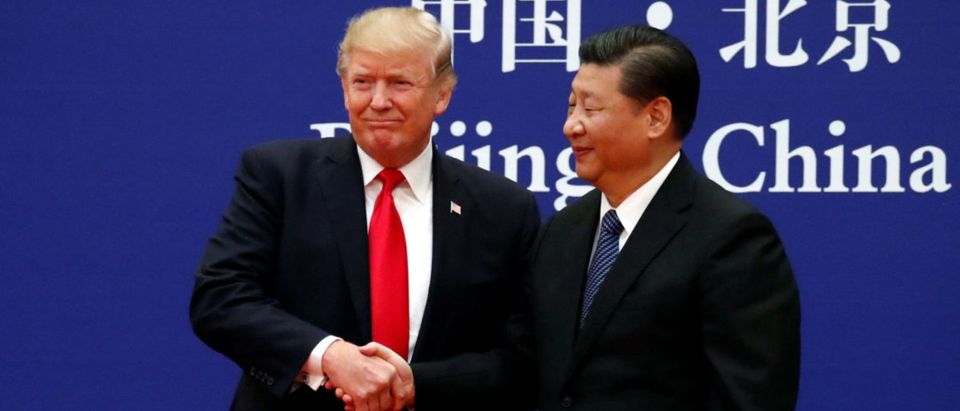While the controversy over the National Basketball Association’s cave-in to Communist China has garnered headlines, a more worrisome Chinese-sponsored influencing project is aimed at American K-12 and higher education.
Since 2004, China has been creating Confucius Institutes at U.S. universities, billing them as Chinese language and cultural centers, staffed with teachers from China. They have also created Confucius Classrooms for K-12 students, also staffed by Chinese teachers.
China provides seed funding plus annual operating funds to the Institutes and the Classrooms.
“The lure of low-cost quality language instruction has been a strong selling point,” notes retired U.S. Air Force Brigadier Gen. Robert Spalding.
According to a 2019 bipartisan U.S. Senate report, the Chinese government has poured $158 million into more than 100 Institutes at universities in 44 states, while also funding 519 Confucius Classrooms at elementary, middle and high schools.
According to the report, “The Chinese government controls nearly every aspect of Confucius Institutes at U.S. schools,” and there is no background vetting of China-provided directors and teachers by either U.S. school officials or government authorities.
The impact of the Institutes on free speech has been as appalling as the more publicized NBA crackdown on pro-Hong Kong sentiments by team and league officials.
For example, a visit by the Dalai Lama, Tibet’s exiled leader, to North Carolina State University was canceled after the school’s Confucius Institute director warned that the visit could set back “strong relationships we were developing with China.”
In testimony before the U.S. Senate, Bill Priestap, a former assistant director of FBI counterintelligence, said, “There have been instances where the Institutes have appeared to quash free speech” and warned that the Institutes are “ultimately beholden to the Chinese government.”
But it is not just federal law enforcement that is worried about the effect of the Institutes on American education.
According to the American Association of University Professors, “Most agreements establishing Confucius Institutes feature nondisclosure clauses and unacceptable concessions to the political aims and practices of the government of China.”
Further, the AAUP warned: “Specifically, North American universities permit Confucius Institutes to advance a state agenda in the recruitment and control of academic staff, in the choice of curriculum, and the restriction of debate.”
The Senate report found: subjects like Taiwan were not allowed to be discussed at the Institutes; Chinese directors and teachers pledged “to conscientiously safeguard [China’s] national interests”; and some schools agreed to follow both American and Chinese law, all of which extends Chinese censorship into American schools.
The Chinese communist regime’s reach, however, goes beyond the Institutes and classrooms.
Spalding, who served as China strategist to the Joint Chiefs of Staff, wrote about a University of California at Berkeley professor who told him he spotted the Chinese consul general on campus, followed him to a meeting with students from China, and “watched as the visitor warned the students not to forget where they came from: ‘We are watching you, and you need to be good. You need to be faithful to China.’”
Spalding observes that such students can be forced and exploited to obtain technology viewed as useful by Beijing.
Frank Figliuzzi, former FBI assistant director for counterintelligence, said in an interview that Chinese involvement in U.S. higher education opens “an opportunity for exploitation by Chinese intelligence services.”
“There’s an agenda here,” warned Figliuzzi, “and the Chinese government uses other platforms to penetrate our society and shape and influence our thinking and our stance toward China.”
Unsurprisingly, the Defense Department has cut funding to Chinese-language programs at universities that host Confucius Institutes.
All this disturbing evidence points to one sane recommendation: American universities and schools should throw the Confucius Institutes and Classrooms off their campuses.
The cravenness of the NBA and stars like LeBron James highlighted the shocking influence of Communist China on American institutions. However, given that one in three America millennials view communism favorably according to recent polling, education is where the battle against communism will ultimately be won or lost.
Lance Izumi is senior director of the Center for Education at the Pacific Research Institute and the former president of the Board of Governors of the California Community Colleges.
The views and opinions expressed in this commentary are those of the author and do not reflect the official position of The Daily Caller.


